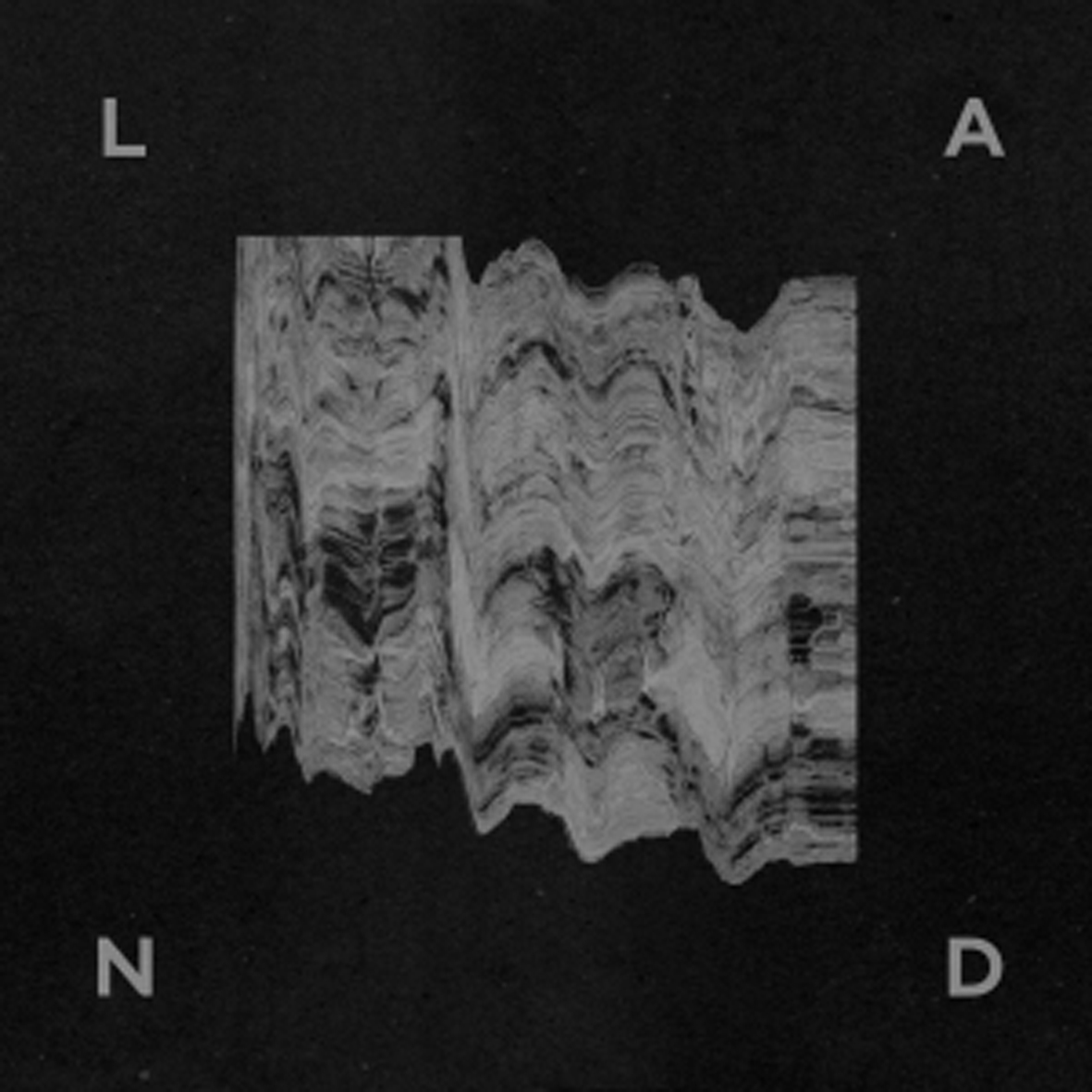Land, "Anoxia"
 I enjoyed L A N D’s debut album quite a bit, but I was completely knocked sideways by the radical transformation that has occurred with Anoxia.  Now apparently a Daniel Lea solo project (Matthew Waters is gone), this latest album completely abandons the industrial noir-jazz aesthetic of its predecessor in favor of something that resembles some sort of sci-fi tribal death cult armed with nothing but junkyard percussion and some stolen construction equipment.  I could not possibly be happier or more surprised with that change.
I enjoyed L A N D’s debut album quite a bit, but I was completely knocked sideways by the radical transformation that has occurred with Anoxia.  Now apparently a Daniel Lea solo project (Matthew Waters is gone), this latest album completely abandons the industrial noir-jazz aesthetic of its predecessor in favor of something that resembles some sort of sci-fi tribal death cult armed with nothing but junkyard percussion and some stolen construction equipment.  I could not possibly be happier or more surprised with that change.
Content aside, the most fascinating aspect of Anoxia is that Daniel Lea does not appear to have played any of the percussion on a solo album that is almost entirely percussive in nature.  Instead, he is credited with sound design, field recordings, processing, and electronics, which I suppose makes L A N D something of an Ivo Watts-Russell/This Mortal Coil scenario: an artist with a bold vision outside the scope of his abilities, but a distinct talent for finding collaborators who can make it happen.  It makes sense that Daniel Lea is a sound designer though, as the only real similarity between Night Within and Anoxia is that both sound great.  Lea clearly has superb attention to detail and a deep understanding of space and density.  Also, he was smart enough to involve Rashad Becker and Ben Frost for mastering and mixing, thus ensuring that these pieces emerge from speakers with maximum visceral force and crystalline clarity (no one does loud and visceral better than Ben Frost).  Actually, I suppose there is a second similarity as well: both albums are extremely "cinematic" in nature, but with a very important distinction: Night Within sounded like a decontextualized soundtrack in need of a film, while a piece like Anoxia's "Metamorphosis" could make a ten-minute shot of a goddamn wall seem intense and menacing.
Unlike This Mortal Coil, however, Daniel Lea actually composed all of these pieces, which is equally fascinating given how precious little non-percussion music Anoxia contains.  In fact, I suspect I could have easily been fooled if someone had presented Anoxia to me as "the Black Pus/Lightning Bolt guy made an ambient album."  That is how it seems at first glimpse anyway, as only a handful of pieces boast any prominent musical component at all.  For example, "Transition" gradually builds into a beautifully quivering and shivering drone motif, while the aforementioned "Metamorphosis" is built upon a wonderfully tense and spectral throb.  In most other cases, however, the "music" is relegated to a vague haze that seems to bubble up or simmer over a complexly bludgeoning and hypnotic percussion pattern.
When scrutinized more closely, however, it is clear that most of the composing is just not immediately obvious because so much of Anoxia was played on unconventional instruments like crotales, an aluphone, and an array of copper pipes.  In fact, nearly every groove on the album is embellished with at least one layer of chiming, plinking, clanging, and ringing metal.  Also, it all sounds beautifully sharp, immediate, and physical due to Lea's talents as a sound designer.  That is where Anoxia borders on genius, as there are several pieces that sound like someone is beating an oil tanker hull with a sledgehammer, playing drums in an empty cistern, or jackhammering the studio.
For the most part, Anoxia so completely eclipses Night Within that it sounds like a completely different band.  That said, however, it is dogged somewhat by one of the same flaws as its predecessor in that many of these nine pieces sound like vamps on a single motif rather than structured, evolving compositions.  Fortunately, most of Anoxia’s pieces are so vibrant and compelling that it does not matter.  Also, Lea did a fairly ingenious job sequencing the album, allowing each piece to segue into the next relatively seamlessly, successfully creating the illusion that some kind of evolution or transformation is occurring within each song. It is not an illusion that Anoxia is a huge evolution for L A N D though.  Daniel Lea has truly outdone himself with this pummelingly heavy, inventive, complex, and distinctive tour de force.
 



